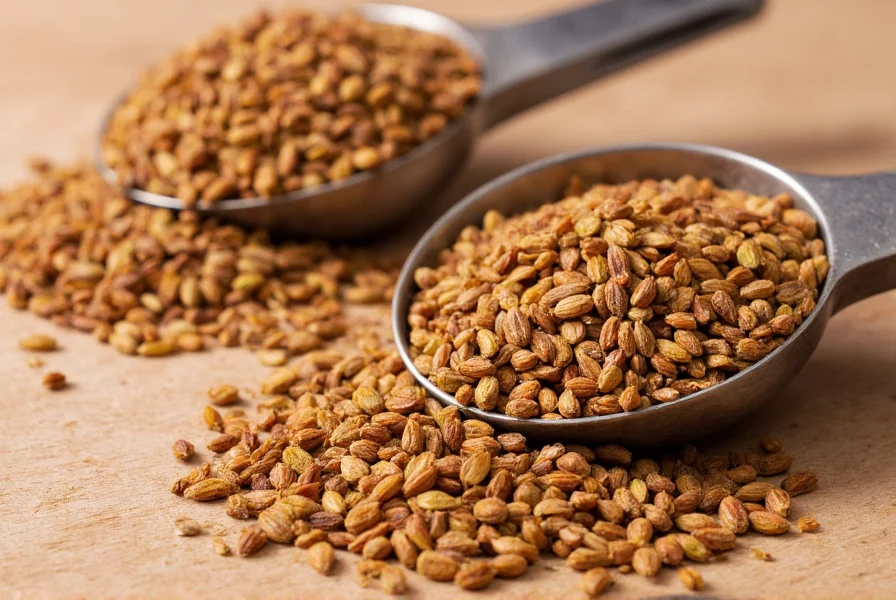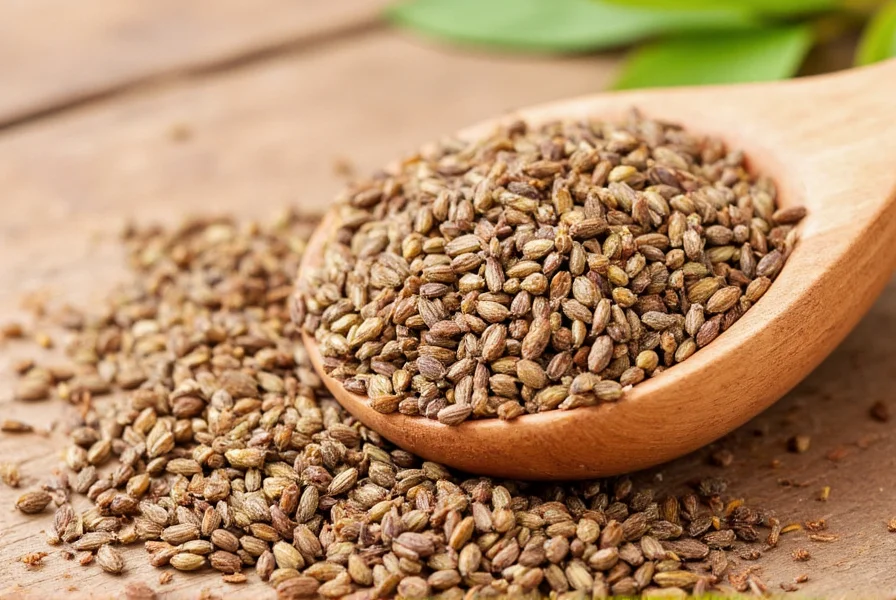For centuries, cumin seeds have been valued not just for their distinctive flavor but for their remarkable health-promoting properties. This ancient spice, derived from the Cuminum cyminum plant, contains a powerful combination of nutrients and bioactive compounds that modern research continues to validate. Understanding the evidence-based benefits of cumin seeds can help you make informed decisions about incorporating this versatile spice into your diet.
The Science Behind Cumin Seeds Benefits
Cumin seeds contain numerous phytochemicals including cuminaldehyde, terpenes, and phenolic compounds that contribute to their therapeutic effects. Unlike many herbal remedies that rely solely on traditional use, cumin has substantial scientific research supporting its health benefits. Multiple clinical studies have examined cumin's effects on various aspects of human health, revealing mechanisms that explain why this spice has maintained its place in traditional medicine systems worldwide.
Nutritional Powerhouse: What's Inside Cumin Seeds
Beyond their distinctive flavor, cumin seeds pack an impressive nutritional profile. Just one tablespoon (6g) of ground cumin provides significant amounts of essential nutrients:
| Nutrient | Amount per Tbsp (6g) | % Daily Value |
|---|---|---|
| Iron | 1.4 mg | 8% |
| Manganese | 0.3 mg | 13% |
| Magnesium | 29 mg | 7% |
| Calcium | 35 mg | 3% |
| Dietary Fiber | 0.6 g | 2% |
These nutrients work synergistically with cumin's bioactive compounds to deliver multiple health advantages. The spice's iron content is particularly noteworthy as it comes with compounds that enhance iron absorption, making it valuable for preventing iron deficiency.

Digestive Health Benefits of Cumin Seeds
One of the most well-documented benefits of cumin seeds relates to digestive health. Research shows that cumin stimulates the production of digestive enzymes, particularly those involved in carbohydrate and fat metabolism. A clinical trial published in the Journal of Ethnopharmacology found that participants who consumed cumin extract experienced significant improvements in symptoms of indigestion compared to placebo.
The mechanism behind cumin's digestive benefits involves:
- Stimulation of salivary glands and digestive enzyme secretion
- Relaxation of gastrointestinal smooth muscle
- Reduction of intestinal spasms
- Enhanced bile production for fat digestion
For those experiencing occasional digestive discomfort, incorporating 1-2 grams of cumin seeds daily may provide noticeable relief without the side effects associated with many over-the-counter digestive aids.
Blood Sugar Regulation Properties
Emerging research suggests cumin seeds benefits extend to blood sugar management. Multiple studies have demonstrated that cumin supplementation can improve insulin sensitivity and reduce fasting blood glucose levels. In a 2020 clinical trial involving 80 participants with prediabetes, those who consumed 75mg of cumin extract daily for eight weeks showed significant improvements in insulin resistance markers compared to the control group.
The blood sugar regulating effects appear to work through several mechanisms:
- Enhancing pancreatic beta-cell function
- Reducing oxidative stress in insulin-producing cells
- Improving glucose uptake in muscle tissue
- Modulating carbohydrate metabolism enzymes
While cumin shouldn't replace prescribed diabetes medications, it may serve as a valuable complementary approach for blood sugar management when used as part of a comprehensive lifestyle strategy.
Antioxidant and Anti-inflammatory Effects
Cumin seeds rank among the most antioxidant-rich spices, with an ORAC (Oxygen Radical Absorbance Capacity) value significantly higher than many common foods. The primary antioxidant compounds in cumin include cuminaldehyde, terpenes, and flavonoids. These compounds neutralize free radicals and reduce oxidative stress throughout the body.
Research published in the Journal of Agricultural and Food Chemistry demonstrated that cumin extract exhibited stronger antioxidant activity than many commonly consumed vegetables. This antioxidant capacity translates to measurable anti-inflammatory effects, with studies showing reduced levels of inflammatory markers like C-reactive protein and interleukin-6 in individuals consuming cumin regularly.
Heart Health Benefits of Cumin Seeds
Cardiovascular health represents another area where cumin seeds demonstrate impressive benefits. Clinical studies have shown that regular cumin consumption can positively impact several heart disease risk factors:
- Cholesterol management: Multiple trials report reductions in LDL ("bad") cholesterol and triglycerides, with some showing increases in HDL ("good") cholesterol
- Blood pressure regulation: Cumin's potassium content and vasodilatory effects may help maintain healthy blood pressure levels
- Antioxidant protection: Prevents oxidation of LDL cholesterol, a key step in atherosclerosis development
A comprehensive review in the Journal of Traditional and Complementary Medicine concluded that cumin shows promise as a dietary intervention for cardiovascular risk reduction, though more long-term human studies are needed.
Practical Ways to Incorporate Cumin Seeds Into Your Diet
Maximizing the health benefits of cumin seeds requires proper preparation and consumption methods. Here are evidence-based recommendations:
- Dry roasting: Lightly dry roast whole seeds before grinding to enhance bioactive compound availability
- Pair with healthy fats: Consume cumin with olive oil or avocado to improve absorption of fat-soluble compounds
- Daily dosage: Aim for 1-3 grams (about 1/2 to 1 1/2 teaspoons) of ground cumin daily for therapeutic benefits
- Timing: Consuming cumin with meals enhances digestive benefits and nutrient absorption
Simple ways to add cumin to your daily routine include sprinkling it on roasted vegetables, adding to soups and stews, mixing into salad dressings, or incorporating into homemade spice blends. For maximum benefit, use freshly ground cumin seeds rather than pre-ground powder, as the volatile compounds degrade over time.
Potential Side Effects and Considerations
While cumin seeds benefits are substantial, it's important to understand potential limitations. Cumin is generally recognized as safe when consumed in culinary amounts. However, high doses (above 6 grams daily) may cause:
- Mild gastrointestinal discomfort in sensitive individuals
- Potential interactions with blood-thinning medications
- Uterine stimulation at very high medicinal doses (caution during pregnancy)
Individuals with bleeding disorders or scheduled for surgery should consult their healthcare provider before consuming cumin in medicinal amounts. As with any dietary change, introduce cumin gradually to assess tolerance.
Evidence-Based Conclusion on Cumin Seeds Benefits
The scientific evidence supporting cumin seeds benefits is both substantial and growing. From digestive health to blood sugar regulation and cardiovascular protection, this ancient spice offers multiple evidence-based health advantages. What makes cumin particularly valuable is that these benefits come with minimal risk when consumed in appropriate amounts as part of a balanced diet.
While cumin shouldn't be viewed as a cure-all, incorporating this flavorful spice into your daily cooking represents a simple, enjoyable way to enhance your nutritional intake and potentially improve several aspects of health. The key is consistency—regular, moderate consumption as part of an overall healthy lifestyle yields the most significant benefits.
Frequently Asked Questions About Cumin Seeds Benefits
What are the top three scientifically proven benefits of cumin seeds?
Research confirms three primary benefits of cumin seeds: 1) Significant improvement in digestive function through enhanced enzyme production, 2) Positive effects on blood sugar regulation and insulin sensitivity, and 3) Potent antioxidant activity that reduces oxidative stress and inflammation. These benefits are supported by multiple clinical studies examining cumin's effects on human health.
How much cumin should I consume daily to experience health benefits?
For therapeutic benefits, research suggests consuming 1-3 grams (approximately 1/2 to 1 1/2 teaspoons) of ground cumin daily. This amount provides sufficient bioactive compounds without risk of side effects for most people. Culinary use typically ranges from 0.5-2 grams per serving. For specific health conditions, some studies have used up to 75mg of concentrated cumin extract, but whole food consumption is generally preferred for regular use.
Can cumin seeds help with weight management?
Some research indicates cumin seeds may support weight management efforts. A clinical trial published in Nutrition Research found that women who consumed 3 grams of cumin powder daily for 8 weeks experienced greater reductions in body fat percentage compared to the control group. Cumin appears to enhance metabolism and fat burning, though it should be combined with a balanced diet and regular exercise for best results. The effect is modest but statistically significant when used consistently.
What's the difference between whole cumin seeds and ground cumin in terms of health benefits?
Whole cumin seeds retain their volatile compounds longer than ground cumin, which loses potency more quickly due to increased surface area exposure. For maximum health benefits, lightly dry roast whole seeds and grind them fresh before use. This process enhances the bioavailability of beneficial compounds like cuminaldehyde. Ground cumin still provides significant benefits but should be stored in an airtight container away from light and used within 6 months for optimal potency.
Are there any specific health conditions where cumin seeds provide exceptional benefits?
Cumin seeds show particular promise for digestive disorders, type 2 diabetes management, and iron deficiency. For digestive issues, cumin's ability to stimulate digestive enzymes makes it valuable for indigestion and bloating. In diabetes management, research shows cumin improves insulin sensitivity and blood sugar control. For iron deficiency, cumin's iron content combined with compounds that enhance iron absorption makes it a valuable dietary addition, especially when consumed with vitamin C-rich foods to further boost absorption.











 浙公网安备
33010002000092号
浙公网安备
33010002000092号 浙B2-20120091-4
浙B2-20120091-4